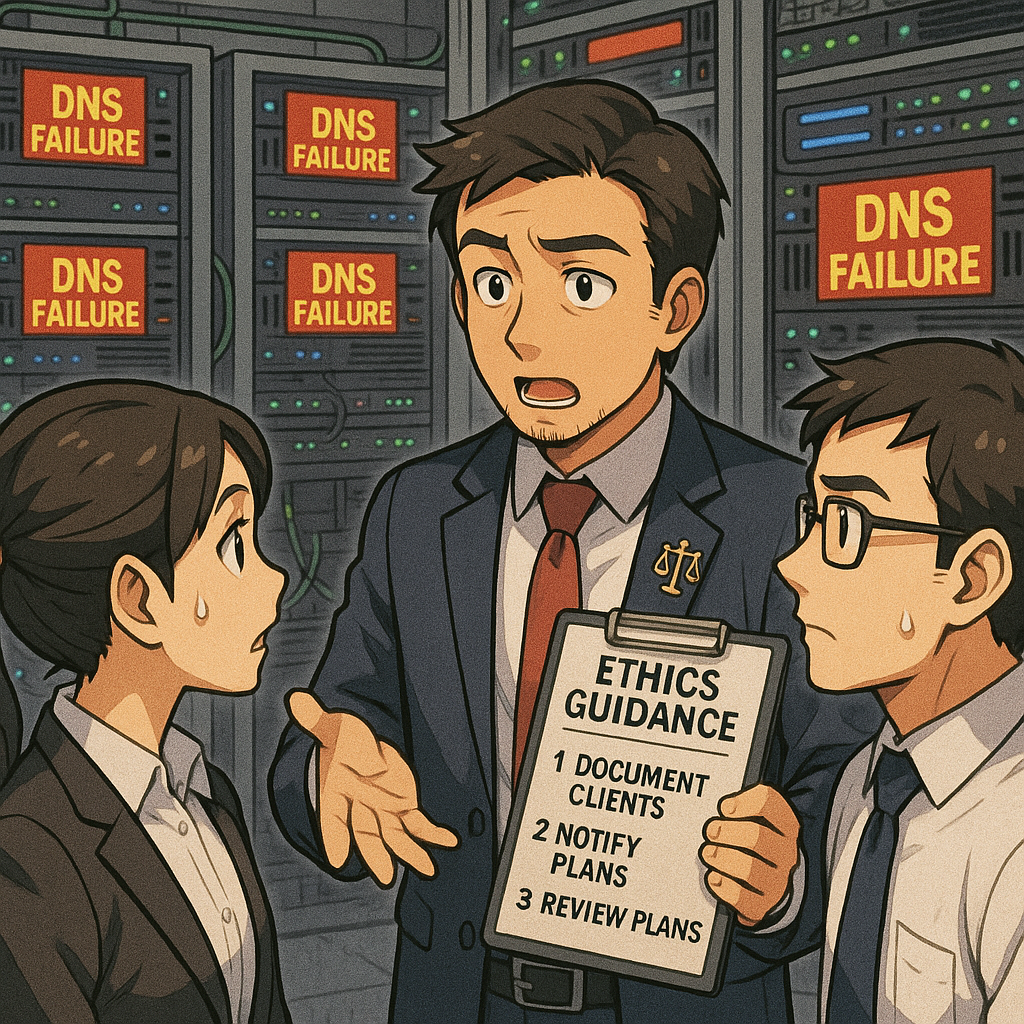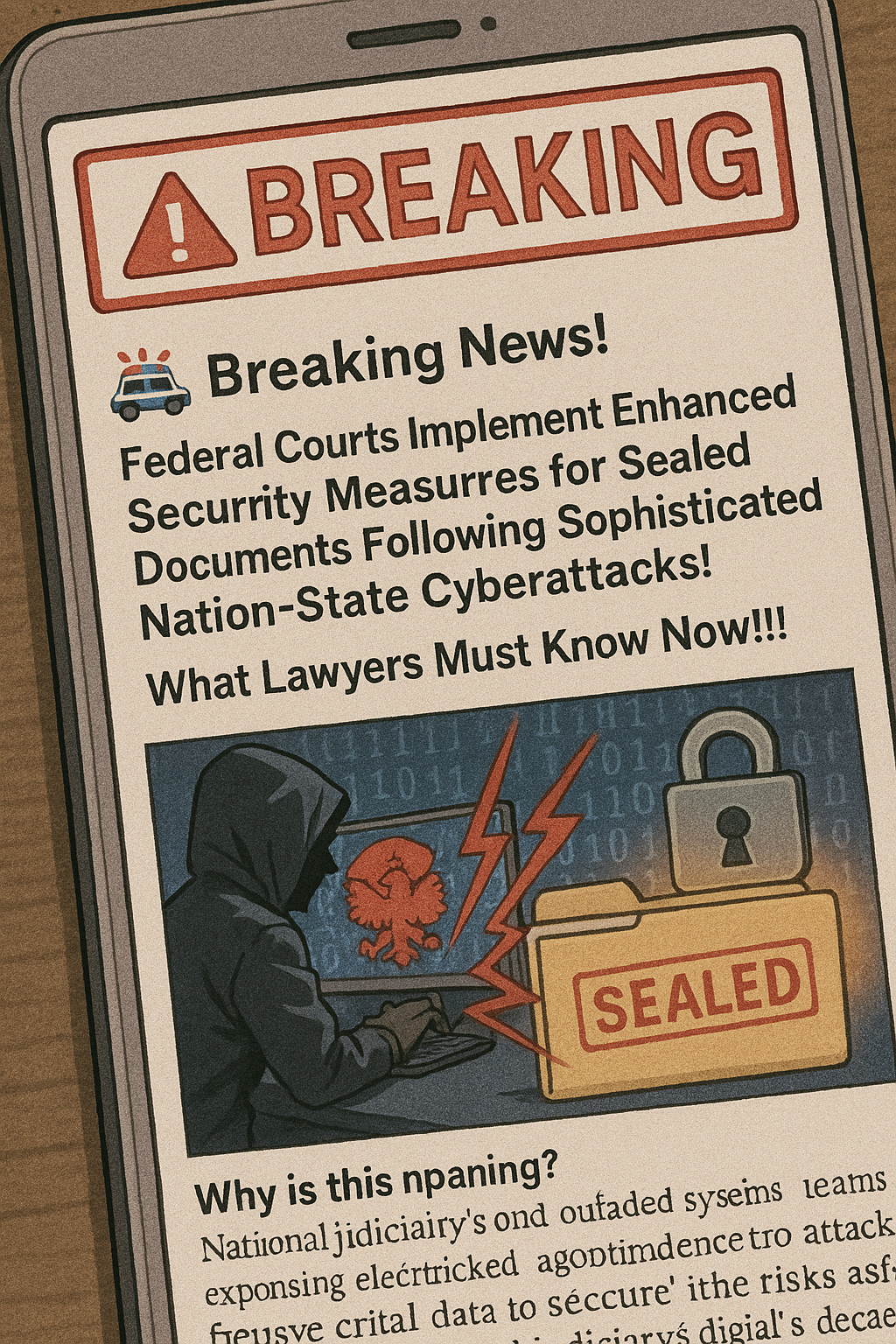🚨 AWS Outage Resolved: Critical Ethics Guidance for Lawyers Using Cloud-Based Legal Services
/Legal professionals don’t react but act when your online legal systems are down!
Amazon Web Services experienced a major outage on October 20, 2025, disrupting legal practice management platforms like Clio, MyCase, PracticePanther, LEAP, and Lawcus. The Domain Name Service (DNS) resolution failure in AWS's US-EAST-1 region was fully mitigated by 6:35 AM EDT after approximately three hours. BUT THIS DOES NOT MEAN THEY HAVE RESOLVED ALL OF THE BACK ISSUES THAT ORIGINATED DUE TO THE OUTAGE at the time of this posting. Note: DNS - the internet's phone book that translates human-readable web addresses into the numerical IP addresses that computers actually use. When DNS fails, it's like having all the street signs disappear at once. Your destination still exists, but there's no way to find it.
Try clearing your browser’s cache - that may help resolve some of the issues.
‼️ TIP! ‼️
Try clearing your browser’s cache - that may help resolve some of the issues. ‼️ TIP! ‼️
Legal professionals, what are your protocols when your online legal services are down?!
Lawyers using cloud-dependent legal services must review their ethical obligations under ABA Model Rules 1.1 and comment [8] (technological competence), 1.6 (confidentiality), and 5.3 (supervision of third-party vendors). Key steps include: documenting the incident's impact on client matters (if any), assessing whether material client information was compromised, notifying affected current clients if data breach occurred, reviewing business continuity plans, and conducting due diligence on cloud providers' disaster recovery protocols. Law firms should verify their vendors maintain redundant backup systems, SSAE16 audited data centers, and clear data ownership policies. The outage highlights the critical need for lawyers to understand their cloud infrastructure dependencies and maintain contingency plans for service disruptions.





















